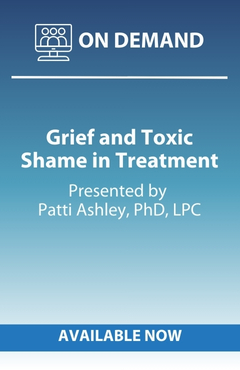Description
LIVE STREAM: November 18 – 20, 2024 from 8:30am – 4:00pm (Winnipeg, MB) Please adjust your start time according to your specific time zone.
ON-DEMAND: Recorded footage & course content (certificate, videos, quiz) will be available December 2 – 20, 2024. Extensions cannot be granted under any circumstances.
Registration will close November 17, 2024.
Monday, November 18, 2024 | Day One
Addressing the Root Causes of Anxiety in Children and Adolescence
PRESENTED BY Gordon Neufeld, Ph.D.
There is currently an epidemic of anxiety and agitation affecting children and teens which can take many forms including attention problems, clinginess, eating problems, obsessions, compulsions, phobias, panic, sleep issues, physical illnesses, as well as a host of other perplexing behaviours. Today’s world can create many challenges for children and youth with school pressures, peer interactions, family dynamics, negative self-image, perfectionism, and many other stressors that can impede a child’s ability to learn and mature. Whether it’s the natural, episodic worries or more profound and crippling versions of anxiety, Dr. Neufeld will help make sense of the roots of anxiety and agitation and suggest ways in which we can help bring the anxious and agitated to rest.
Tuesday, November 19, 2024 | Day Two
After the Meltdown: 20 Practical Prevention & Intervention Strategies to Improve Self-Regulation, Executive Function & Explosive Behaviour
PRESENTED BY Kathy Morris, M.Ed.
This 6-hour course offers comprehensive training for professionals and caregivers working with children or adolescents diagnosed with Autism Spectrum Disorder (ASD), Attention-Deficit/Hyperactivity Disorder (ADHD), or other developmental disorders. Participants will learn practical strategies to manage meltdowns, tantrums, and challenging behaviors resulting from sensory overload and emotional dysregulation. The course emphasizes fostering positive behavior, enhancing self-regulation skills, and improving overall quality of life for individuals with neurodevelopmental differences.
Wednesday, November 20, 2024 | Day Three
Supporting Students: Understanding and Addressing Mental Health in the Classroom
PRESENTED BY Caroline Buzanko, Ph.D., R. Psych
Experience a transformative workshop that is meticulously designed for educators seeking to understand and effectively support students experiencing mental health challenges. Empower yourself with the knowledge, practical skills, and strategies essential for fostering a positive classroom atmosphere where all students can thrive, even when facing mental health difficulties.
Through a combination of presentations, interactive discussions, case studies, and practical activities, you will gain a deeper understanding of the common social, emotional, and behavioural challenges prevalent in today’s classrooms. Master concrete, practical tools aimed at cultivating a positive educational environment and managing a spectrum of issues including oppositional defiant disorder (ODD) and other disruptive behaviours, attention deficit hyperactivity disorder (ADHD), pathological demand avoidance (PDA), autism, anxiety, and depression.
Through Dr. Buzanko’s expert guidance and the practical strategies shared, you will leave equipped to create a welcoming, supportive, and inclusive learning environment that promotes student engagement, fosters harmonious interactions, and enhances overall academic and emotional well-being.
Positive Paths: Transforming Behaviour In Children & Adolescents with Essential Behaviour Modification Techniques
PRESENTED BY Caroline Buzanko, Ph.D., R. Psych
Addressing disruptive behaviours in children requires a delicate balance of assertiveness, understanding, and strategy.
In this workshop you will receive in-depth training on managing and transforming challenging behaviours through positive behaviour support strategies and conflict resolution skills. These strategies will address all behavioural challenges including Oppositional Defiant Disorder (ODD), Conduct Disorder (CD), Pathological Demand Avoidance (PDA), and screen addiction. By integrating case studies, evidence-based practices, and interactive discussions, you will learn how to address challenging behaviours without escalating situations.
Learn how to create positive, supportive environments that encourage desirable behaviours, enhance communication, and foster conflict resolution skills.









